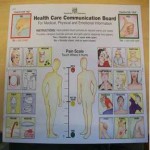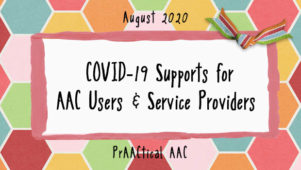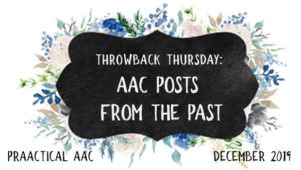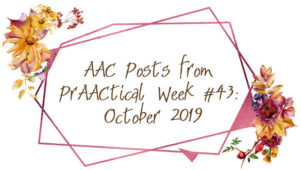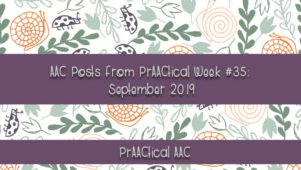Did You Know: AADMD Offers Specialty Webinars for Working with Adults with Developmental Disabilities
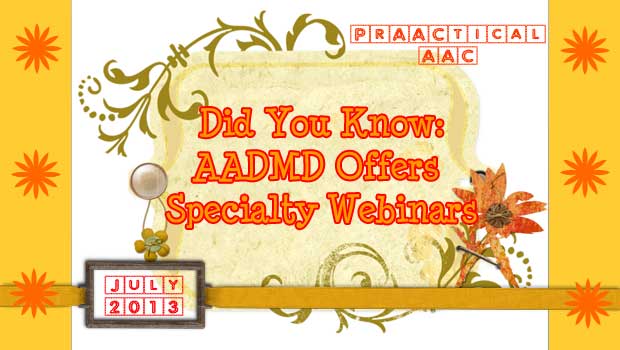
This month’s strategy is about AAC and older children. This topic happens to dovetail with some work I am doing regarding healthcare options for many of the children in our community who have quickly become adults. It seems like so many families struggle to find physicians and dentists who have experience working with adults with autism spectrum disorder and/or developmental disabilities. It seems that as children become adults, their pediatric doctors and dentists say goodbye and families are left to fend for themselves. A workgroup of parents and professionals are trying to change this trend by finding interested physicians and providing them with formal training options, introducing them to their personal adult children, and working with medical school and residency programs.
As I was researching some healthcare training options, I came upon the American Academy of Developmental Medicine and Dentistry (Thanks Deborah Chin). As I was reading through the website (loving the mission and vision), I found an interesting webinar. I was impressed that the brief description included mention of assistive technology and communication . So I decided to listen to the webinar and lo and behold, I should have known, it was authored of course by Carole Zangari. We blog together, talk most days, and yet somehow I missed her work on this wonderful resource.
Check out the American Academy of Developmental Medicine & Dentistry (AADMD), share it with doctors, dentists, nurses, and any other allied health professionals that work with, want to work with, or have interest in working with adolescents and adults. Let’s change the trend… so as children become adults they will have highly trained professionals available to prevent and take care of medical issues.
Here are some special projects by the AADMD:
Physician Education in Developmental Disabilities Webinar Series Free – Sponsored by the Florida Developmental Disabilities Council. Topics include: History and Terminology, The Common Characteristics of Neurodevelopmental Disorders, Communication (Patient, Parent/Caregiver and Inter-professional), Responsiveness, Respect, Self-Determination and Consent, The Patient Support System, Assembling Accurate Clinical Information (Part 1 & Part 2), Optimizing Well-being, Transitions from Pediatric to Adult Care, Identifying Quality Resources and Improving Practice, Behavior and Medication Management, Healthcare Financing
Emergency Care Webinar Series $10.00 per webinar (live or archived). Topics include: Management of Acute Behavioral and Psychiatric Emergencies Part 1, Emergency and Acute Management of Seizures Among Individuals with I/DD, Emergency and Acute Management of Seizures Among Individuals with I/DD, First Response for Individuals with I/DD, End of Life, What is Happening in Policy that Affects Emergency and Acute Care for Individuals with I/DD, Emergency Management of Acute Medical Conditions, Creating Hospital Standards
FRIEND Residency Pilot Program -Free Topics Include: Patients with Disabilities as Teachers, Objective Structured Clinical Exam, & Home Visits (all powerpoint downloads)
Resources- Free Topics Include: Printable Picture Communication Aid, Medication Side Effect Watch List, Medication Dental Side Effect Watch List, and more.
Filed under: PrAACtical Thinking
Tagged With: Allied Health Professionals, communication, communication boards, Health, Older Children and Adults, Physicians, Training
This post was written by Robin Parker
